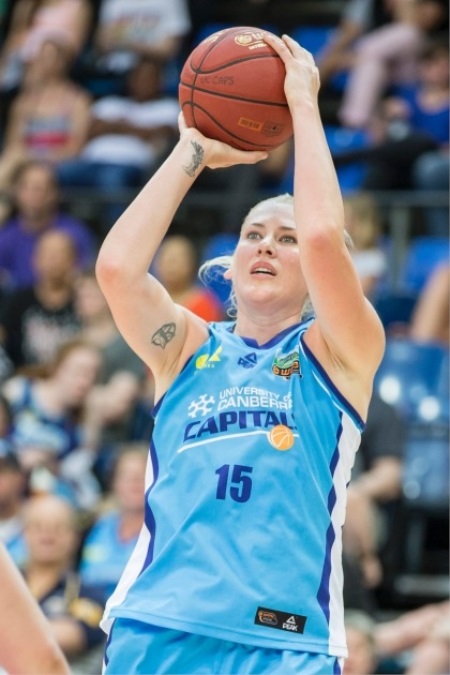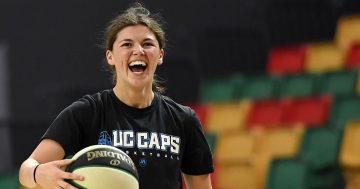
Lauren Jackson is recognised worldwide for her contribution to basketball, and the time has come for Canberra to formally do the same. Photo: Basketball Australia.
This week, Lauren Jackson received yet another accolade in recognition of her incredible basketball career.
No, it wasn’t in Canberra where she was instrumental in leading the UC Capitals to four WNBL titles, along with the championship won in 1998 while she was part of the all-conquering AIS team.
Jackson was instead named in the WNBA’s top 25 players in the league’s 25-year history.
Previously, in 2006, she was named in the top 10 players of the WNBA’s first decade.
If nothing else, this latest accolade prompts a reflection on Jackson’s achievements in the strongest women’s basketball competition in the world.
During her WNBA career with Seattle Storm, which began in 2001, Lauren accumulated honour after honour. In fact, there wasn’t an award she was eligible for that she didn’t win: two WNBA titles, WNBA MVP, WNBA Finals MVP, WNBA Defensive Player of the Year, WNBA All-Star team, and the list goes on.
This week’s recognition comes on top of being inducted into the Naismith Memorial Basketball Hall of Fame, becoming the first Australian player to be elevated to this honour. Fellow Australian Lindsay Gaze was inducted in recognition of his coaching record.
When Jackson was told she would be inducted into the US basketball hall of fame earlier this year, she explained to American news network NBCSNW that she was overwhelmed at becoming the first Australian player to be afforded the honour.
When she retired from the WNBA, her number 15 jersey was retired and hoisted to the rafters at Seattle Storm’s home stadium, Climate Pledge Arena.
In Australia, Jackson’s record is even more impressive, winning five WNBL titles, WNBL MVP four times, being a WNBL All-Star five times, and a four-time WNBL Grand Final MVP. In 2003, she was the league MVP in both the WNBL and the WNBA.
She led Australia to three silver medals at the Olympics and a world title in 2006. The following year she was named MVP in the Korean Basketball League.
I would argue Jackson boasts one of the greatest records in world sport in terms of making an impact on that particular sport.
She is arguably ‘the Bradman of women’s sport’, yet in Canberra – where she joined the AIS as a 16-year-old before taking on the world – there is little recognition.
In Albury, Jackson’s home city, there is a basketball stadium named in her honour.
We have recognition for plenty of male athletes in Canberra, and it’s about time we seriously looked at how we can honour one of the greatest athletes Australia has ever seen.
The impact Jackson had on Canberra basketball makes it even more relevant.














